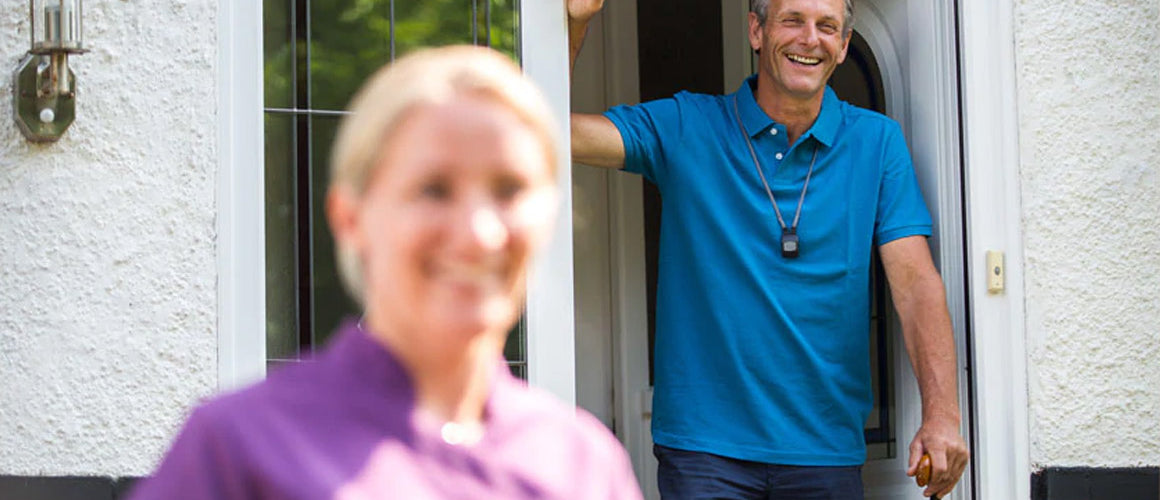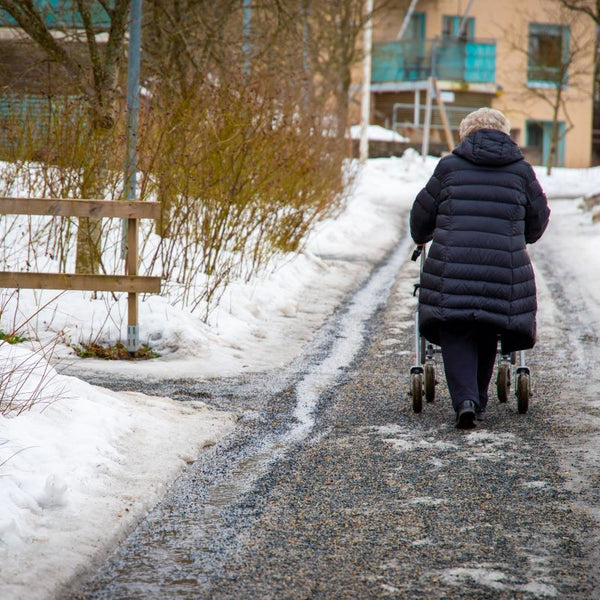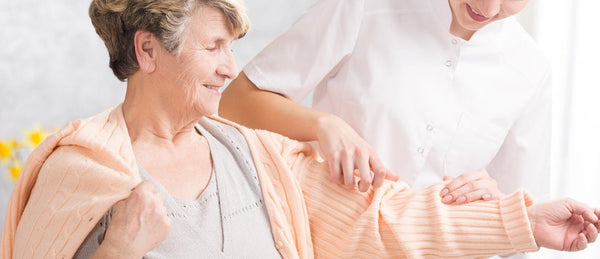When it comes to caring for your elderly loved ones, there is a vast number of decisions to make. It can be overwhelming and hugely stressful at times if you are doing it by yourself, so many people choose to work with a professional carer to help them.
That's why we asked The Live In Care Company to explain the different types of in-home care.
Choosing in-home care
When it comes to supporting your elderly loved ones in their happiness and safety, it is important to have peace of mind you have made the right care choices.
Choosing a care home can be fantastic for some, but others much prefer staying in their own home due to the increased stress levels from having to move from an environment they have been in their entire lives.
In this article, we will be looking at the main services that live-in carers can provide your loved ones with, if they are at the stage of their life where care is required.
Type of home care
- Live-in care
- Personal care
- Overnight care
- Respite care
- Incontinence care
- Medication management
- Domiciliary care
- Dementia care
1. Live-in care
Live-in care for the elderly is when a carer moves into the home of the elderly person being cared for to provide care.
Companionship benefits us in plenty of ways, and this shouldn’t change as we age. Live-in carers can also provide companionship; whether that’s sharing meals, watching TV or getting out and about together.
2. Personal care
Personal care for the elderly broadly relates to helping a person with their personal hygiene, dressing, toileting and maintaining personal appearance. It can also include eating, whether that is preparing meals, or helping to feed a client.
3. Overnight care
If your elderly loved one struggles with mobility or incontinence, then elderly overnight care may be required. 24-hour home care is available in many forms, but it is mainly divided into sleeping night care and waking night care. Elderly overnight care can be specifically tailored to your loved one’s specific needs.
Sleeping night care
Sleeping night care is the perfect solution for those who are worried about being left alone at night, but do not need much in the way of physical support. An overnight sleep-in carer will sleep in their own room, and will not be expected to get up more than twice a night.
Waking night care
A waking night carer offers more support throughout the night, will come to your house to do a night shift and can help you with administering medication, toileting and changing position in bed.
4. Respite care
A respite carer for the elderly can be a temporary live-in carer if needed, or they can offer ‘visiting’ care. Typically, depending on your needs they can do the same tasks that the main carer usually undertakes such as personal care, help with attending appointments and medication prompting.
5. Incontinence care
Incontinence in the elderly is a common issue with almost a quarter of older people in the UK being affected by some form of urinary incontinence. Many elderly people don’t like to discuss incontinence issues because they can feel ashamed and embarrassed but expert incontinence care can help your elderly loved one feel comfortable and at ease in their own home.
There are many reasons why incontinence may occur in elderly people, including weak bladder muscles or pelvic floor muscles, overactive bladder muscles and urinary tract infections.
If you think your elderly loved one is having issues with incontinence, then it is important that you talk with them about this as soon as possible.
6. Medication management
Medication management is a type of elderly care where carers are also responsible for helping with all aspects of medication. Elderly live-in carers can help effectively manage all medication needs and will support your loved one with any aspect of their medication that they need help with.
Main duties include ensuring that no medications are missed out, medication mistakes that may lead to harmful drug interactions are avoided and that pain is managed adequately.
7. Domiciliary care
Domiciliary carers strive to ensure clients maintain independence wherever possible while providing home help services as and when required.
Domiciliary care services can also be a valuable source of companionship, especially if you or a loved one is recovering from an illness, operation or other medical treatment and the family lives far away.
8. Dementia care
Specialist dementia care at home can make an incredibly big difference to your’s and your loved one’s life.
Dementia home care allows your loved one to remain in their own home, whilst also receiving the support they need on a one-to-one basis. With a tailored care plan, dementia care at home ensures your elderly loved one is in familiar surroundings with a set routine.
24-hour dementia care at home offers round-the-clock care so that your loved one is supported at all times of the day, ensuring they are safe. Your elderly loved one will have a companion with a specialist dementia carer experienced in managing cognitive problems associated with dementia.
If your loved one is living with dementia and prone to wandering, a monitored dementia alarm or dementia tracker may provide peace of mind.
Providing additional support
Even with home care arranged, there may be times when your loved one will be on their own. A personal alarm can complement your choice of home care so there is always a way to get help when a carer cannot be around.
Choosing the method of care for your loved one
Assessing the exact needs that your elderly loved ones will need can be daunting, but it is extremely important. The scale of physical or mental ability is so varied of a person in their later years, that taking the proper time to assess what type of care is needed is crucial.



